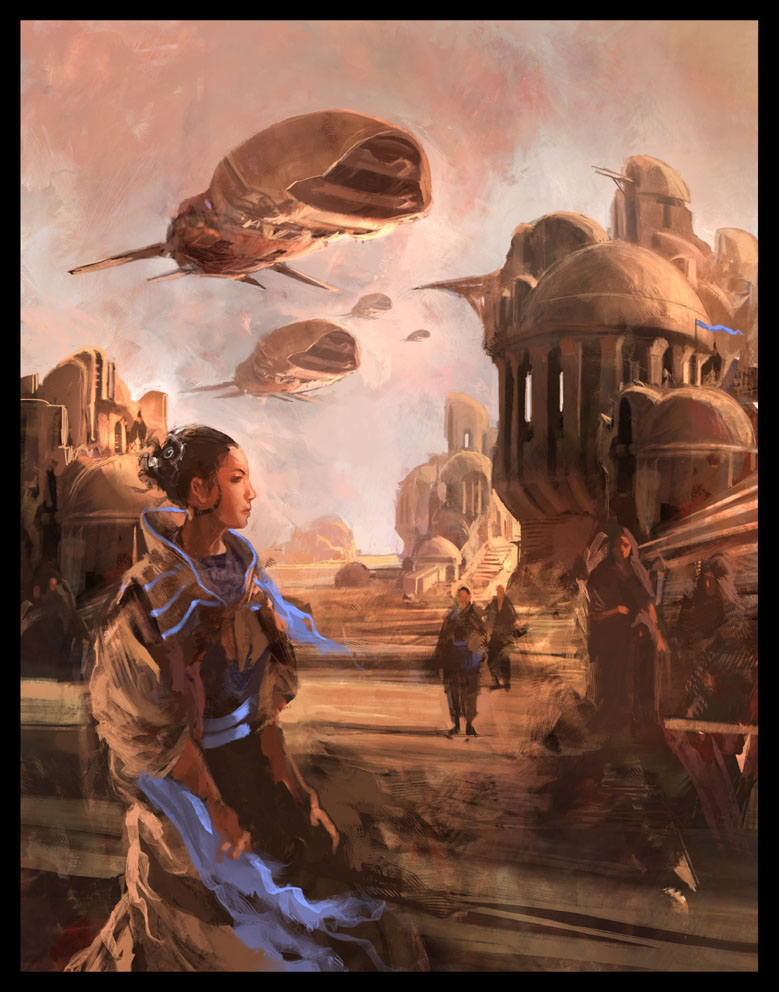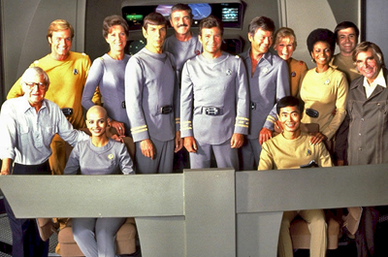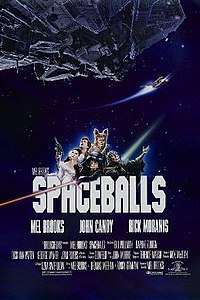Like its predecessor,
Iron Man 2 officially kicks off the
summer movie season. Some of the biggest stars in Hollywood suited up for this comic book movie adaptation, but did it live up to the amazingly high standards set by the first film?
[Extremely minor spoilers from this point on.]
Iron Man 2
Director: Jon Favreau
Starring: Robert Downey, Jr., Mickey Rourke, Sam Rockwell, Gwyneth Paltrow, Don Cheadle, Scarlett Johansson, and Samuel L. Jackson

I think Iron Man 2 suffered from a case of overactive marketing. Add up all of the various trailers and television spots for this movie, and it basically takes us chronologically scene by scene through the entire film. There's no sense of wonder that the first film evoked, no mystery left for us to discover. If you go back and rewatch the , you'll see that they don't actually show Stark doing much in the traditional Iron Man suit except flying. This time around, they took the exact opposite approach: by showing us every action scene in the trailer, the audience is unable to connect with the story and is instead left playing the "well, we know where this is going" game.
Sure, you could argue that in today's over-saturated media marketplace, we're bound to see big scenes in trailers and TV spots. But IM2 showed its hand early, giving away all its secrets and (if you'll allow the continued metaphor) leaving the final trick to fall a bit flat since all the magic had been revealed. Even if they had just left us one surprise (Iron Man's slick new suitcase suit at the end of the grand prix scene, for example), perhaps it would have been enough for us to again experience that magical feeling the first film captured so well. The marketing department even went as far as to show us a scene in the trailer that didn't make it into the final cut of the film ("you complete me"), and somehow they STILL had time to reveal all of the big scenes for us before we walked into the theater.
For me, the film felt like a series of missed opportunities. The only reason we know Mickey Rourke's character's name is Whiplash is through press releases and plot synopses before the movie came out. The word "Whiplash" is never spoken once in the entire movie. There was also no mention of the Ten Rings organization, the terrorist group responsible for Stark's capture in the first film. With the way the original ended (the leader of that group still at large), I figured there would at least be a passing reference to their surely-nefarious activities (similar to the Scarecrow's cameo in The Dark Knight), if not a full-on exploration into their plans in the wake of Iron Man's rise to power.

Speaking of exploration, perhaps the biggest missed opportunity in the movie was the lack of exploration into the Pepper Potts character. I've never been a big fan of Gwyneth Paltrow, but she's very likable as this character and provides a good counter-point to Stark's ridiculous eccentricity. In the film, Tony makes Pepper the CEO of Stark Industries, which is a great chance to further explore her character and see how she reacts to the responsibilities thrust upon her. Instead, Pepper becomes perhaps the most marginalized character in the film, relegated to just one or two scenes in which all she does to convey her newfound authority is hurriedly speak to someone on the phone. By the end, she has resigned from her position, but we are never given a clear indication about the future of Stark Industries; is Tony back as the CEO, or does the job still belong to Pepper? Favreau is content with zooming out while they're having this discussion, and the question is left unanswered. (Granted, from what we've seen so far, Tony's duties as CEO took a backseat to his work as Iron Man so it's not REALLY that important an issue - but a bit of clarification would have been nice.)

The character of Tony Stark has been altered dramatically. In the six months between the events of the first film and the start of this one, Stark's cockiness has been brought to its logical conclusion. He's revealed to the world that he's Iron Man, which is seemingly enough to justify him turning into a total jackass. His trademark swagger and witty banter seems much more malicious here, and Stark seems almost vindictive, going out of his way to bring people down and make them look like idiots all around him. There's also the alcohol abuse: not the full-on "Demon in a Bottle" examination once rumored for the project, but instead a birthday party scene which is basically an excuse for an excessive amount of useless CGI fighting between Iron Man and War Machine. The entire depiction of Stark reminded me of the titular character in
Rocky III: high from his heavyweight titles, overexposed, and an altered version of the lovable boxer we saw in previous films.

While the movie doesn't quite venture into
Spider-Man 3 territory, it does introduce multiple new characters and features two new villains. Mickey Rourke plays Ivan Vanko, a Russian expatriate with an inexplicable affinity for cockatoos and a Stark-like ability to engineer electronics and robotics. Considering Vanko was raised in Russia by a drunk, his talent is theoretically more impressive than that of Tony Stark, who, while a notable child prodigy, was unquestionably raised in an environment more conducive to their brand of sophisticated technical knowledge. It's too bad
Iron Man 2 isn't interested in exploring these theoretical situations; instead of being an interesting character, Vanko is depicted as an essentially mute guy who, while certainly looking the part of a villain, is actually a pretty terrible one. Rourke doesn't help matters any as an actor, imbuing Vanko with about as much personality as my computer desk and, in his opening scene, going so far over the top with his bellowing yell that it elicited laughter from me instead of sympathy.

Sam Rockwell (fresh in my mind from his fantastic performance in 2009's
Moon) fared a bit better as Justin Hammer, Stark's industrial rival and the Negaduck to Stark's Darkwing. He was also a bit over the top, but that trait seemed to fit better with his character. An egomaniac obsessed with beating Iron Man at his own game, Hammer is a charismatic dude (with some sweet dance moves) who spends practically half of the movie picking up Tony's sloppy seconds (including that "piece from Vanity Fair"). He might be a bit crazy, but he just wants to one-up Stark in any way possible, so he thinks teaming up with Vanko will be the solution to his problems. I'll avoid any big spoilers, but it's safe to say that Vanko is a bit smarter than he appears.

Don Cheadle replaces Terrence Howard as James "Rhodey" Rhodes this time around, and I thought he filled the role without missing a beat. While I prefer Howard's depiction of the character, Cheadle more than held his own and was easily capable of acting against Downey. And yes, as we saw exhaustively in the trailer, War Machine is featured pretty heavily in
Iron Man 2. Cheadle seems to have fun with the character, but Howard's smirk when he says "next time" to the silver suit in the original film makes me a bit sad that he wasn't able to fulfill his own prophesy.

The most surprising part of the film was Scarlett Johansson, who actually wasn't bad as Black Widow. Let's face it - she's got the looks, but she doesn't always deliver in the acting department. She doesn't have many lines here, but her delivery was sincere and I bought her in the role. She definitely has the physicality for the little bit of action the character performs (also given away in the trailer), a "female kicking ass in a hallway" scene thematically similar to a scene we just saw in Matthew Vaughn's
Kick-Ass but not nearly as brutal. Despite some strange directorial choices in that scene with regards to overhead shots and distracting editing, she still comes out with the desired effect: looking badass.

In keeping with the "missed opportunities" theme, we have a small appearance by Samuel L. Jackson as S.H.I.E.L.D. chief Nick Fury, who guides Stark in the right direction for one or two scenes and then is absent for the rest of the movie. I realize he's a minor character, but I would like to see a brief diversion into that character's mind and gotten to know him a little bit. He's going to pop up in other Marvel films until
The Avengers comes out, but until then he'll most likely be seen in a small capacity like this and I doubt any screenwriter will devote enough time to get to know this character when they've got a huge hero to build their stories around. When you think about it, we know almost the same now about the Avenger Initiative as we did with Fury's brief post-credits mention of it at the end of the original
Iron Man. We hear that Iron Man is recommended for a slot on the team, but Tony Stark is not - and then we aren't allowed any further insight into the potential consequences of what that might mean.

Maybe it's just me, but I felt like this entire movie was not as well-directed as the first one - strange, considering Jon Favreau was at the helm for both entries. In
Iron Man 2, there is a long list of decisions that I simply didn't agree with. The first-person POV scene walking through the crowd was dizzying and unnecessary, as were the wild camera movements in our introduction to Iron Man right before he lands at the Stark Expo. Instead of locking down the camera like he did in that cool shot during Stark's first flight over the Santa Monica Pier and the Ferris wheel in the original movie, Favreau chooses to spin the camera around as Iron Man freefalls toward the ground, jarringly swinging in close to him and then far away again with no particular rhyme or reason.
I also had some issues with the Monaco race scene. Apart from the opening establishing shot of Monaco - a
Dark Knight-esque helicopter shot that gorgeously reveals the layout of the city below - I thought the whole race sequence was not very well done at all. There wasn't a single POV shot from the front of the car, which seems like a no-brainer if you're trying to convey the feeling Stark is having of speeding down the track. Instead, Favreau places the camera high above the action and we look down on it passively and detached from the action. The sense of speed was poorly translated, which was yet another missed opportunity since we don't see Indy car races in film very often.
Let's also not forget that Whiplash destroys a car, and then - with no protection, mind you - is literally engulfed in flames as he pulls a "cool guys don't look at explosions" and walks out unscathed on the other end. What was his endgame there? In yet another comparison to
The Dark Knight (I know, I know, but they just keep coming to me), The Joker allowed himself to be captured, setting up that great jail interrogation scene but also thinking ahead enough to engineer his own escape. Writer Justin Theroux tries to emulate that pattern, but falls short when we realize that Whiplash just wants to "make God bleed" and...that's it. He's got no game plan after that, he's just hoping that someone else who hates Iron Man will bust him out of prison. Of course, Justin Hammer plays right into his hands, but Whiplash's plan seems much more thrown together than the calculated brilliance of The Joker's.
This brings up perhaps my most basic criticism of the movie. If Whiplash's tentacles are approximately 20 feet long, why doesn't Iron Man, I don't know, just take a few steps back? Or maybe - and bear with me here, because I realize this suggestion might be too unbelievable - maybe he could freaking FLY AROUND HIM blasting Whiplash with pulse beams all day long while he swings in vain down on the ground. I can't comprehend how someone as "smart" as Tony Stark would see that the guy has a limited reach and say, "you know what? I'm going to get in close with this dude and see how that works out for me." Mind-boggling.

I know if I was still a kid, I'd love this movie simply because it has more Iron Man fight scenes than the first one. But that argument no longer holds true for me now that I'm an adult. It's the same feeling I got when watching Louis Letterier's
The Incredible Hulk - I enjoyed the sequences with Ed Norton as Bruce Banner far more than I did watching a CGI Hulk smashing things. Comic book films have done a great job of
locking down A-list dramatic actors in the past few years, and my theory is we should be allowed to watch them work. Let them earn their massive paychecks.
To be fair, you'll have to take that last paragraph with a grain of salt. I'll admit (as I did in
my review of the first film) that I've never read an Iron Man comic or been a fan of the character before I saw Favreau's 2008 movie, so perhaps I'd have been more excited to see a CGI Iron Man blowing up CGI drones if I were passionate about the character and grew up imagining these sequences on the big screen. But since that isn't the case for me personally, I ended up coming down a bit hard on this film.
Despite my criticisms, I'd still recommend checking this out. It's not terrible, but I just had a lot of issues with it. If you're looking for a good summer action flick, this is definitely a good place to start, and I'd even say it's worth seeing in theaters (if you catch a matinée). But when Marvel follows up a great first film with a mediocre second one, they shouldn't be surprised to hear vocal disappointment from fans and critics alike. Turn off your hype machines, lower your expectations, and you'll have a good time. Until next time...






















